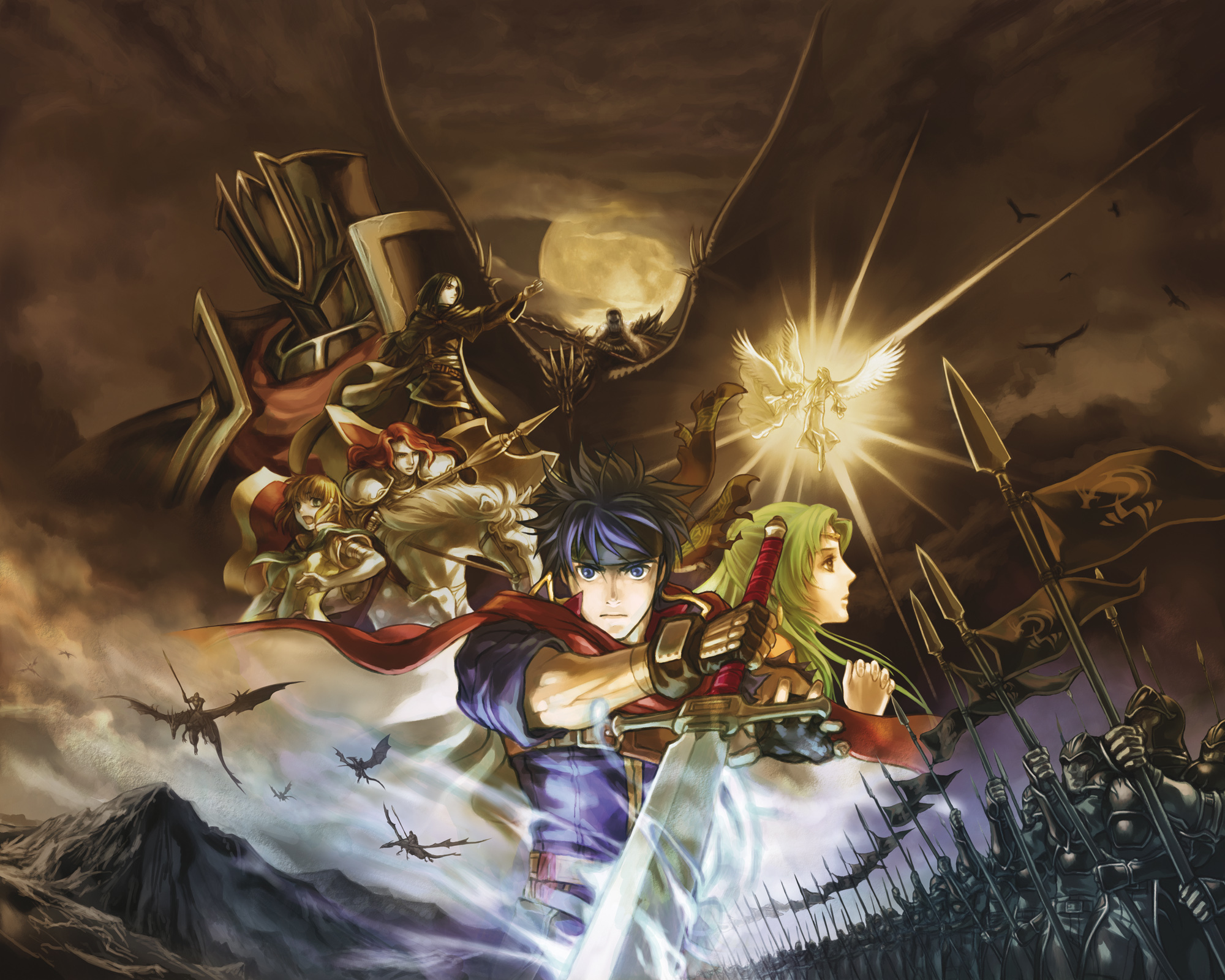Fire Emblem: Path of Radiance
About
Fire Emblem: Path of Radiance is a tactical role-playing video game developed by Intelligent Systems and Nintendo SPD, and published by Nintendo for the GameCube home console in 2005. It is the ninth main installment in the Fire Emblem series, and the third to be released in the west. As with previous installments, gameplay revolves around positioning characters on a battlefield with the aim of defeating an opposing force. If characters are defeated in battle, they are removed from the rest of the game.
The story takes place in Tellius, a separate world from other Fire Emblem games. Tellius is a continent inhabited by the humanoid Beorc and the shapeshifting Laguz. The game begins when the Beorc nation of Daein invades Crimea, a fellow Beorc nation. The protagonist, a mercenary named Ike, discovers Princess Elincia, the last heir to the throne of Crimea, and begins a journey to restore her to the throne. Ike and his group travel across Tellius to form alliances with the other countries and free Crimea from Daein's control, confronting racial tensions and long-standing resentment between the Beorc and the Laguz along the way.
Path of Radiance began development for the GameCube after the overseas success of the Game Boy Advance game Fire Emblem, becoming the first home console entry in the series since Fire Emblem: Thracia 776. The game is the first entry in the series to feature 3D graphics, full motion cutscenes, and voice acting. The series' transition to 3D caused multiple difficulties for the developers. The localization team worked closely with Intelligent Systems to ensure the localization was as true to the original Japanese as possible. Upon release, the game received widespread critical acclaim for its gameplay and story, but several journalistic sites and magazines made negative comments about the game's graphics. The game debuted at the top of Japanese gaming charts, and was considered to have sold well. A direct sequel for the Wii, Fire Emblem: Radiant Dawn, was released in 2007 in North America and Japan, and 2008 in Europe and Australia.
